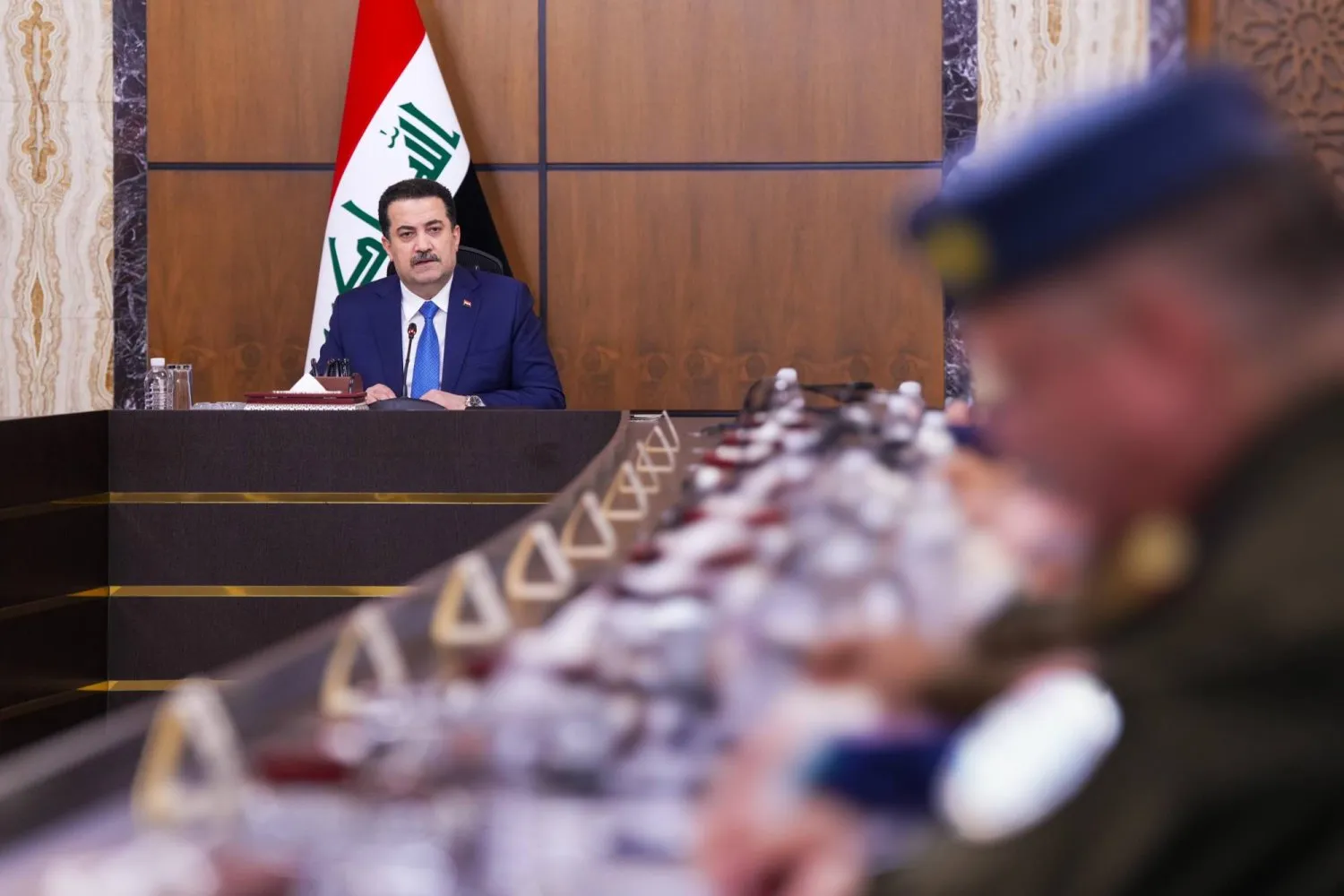The Iraqi government has responded firmly to an Israeli complaint submitted to the UN Security Council, accusing Iraqi armed factions of launching attacks on Israel and holding Baghdad responsible.
Prime Minister Mohammed Shia Al-Sudani’s government convened on Wednesday an emergency meeting of the National Security Council, which resulted in the announcement of 12 measures aimed at countering these accusations, strengthening internal security, and maintaining Iraq’s sovereignty.
A key directive focuses on asserting state control over military activities. Security agencies were instructed to “prevent and pursue any military actions outside the state’s authority” and enhance security along Iraq’s western borders with rapid deployment and robust planning. This aims to curb the activities of armed factions operating outside the state’s framework, particularly near the Syrian border, which is believed to be a base for groups attacking Israel.
The Israeli complaint, filed by Foreign Minister Gideon Saar, accused six factions within the Popular Mobilization Forces of targeting Israel and blamed the Iraqi government for allowing such actions.
The Iraqi government strongly rejected the accusations. Major General Yahya Rasool, spokesperson for the Commander-in-Chief of the Armed Forces, described the allegations as a pretext for a potential Israeli attack on Iraq, aimed at escalating regional tensions.
Rasool emphasized that the decision to declare war or peace rests solely with the Iraqi government and highlighted ongoing efforts to prevent Iraqi territory from being used for external attacks. These include seizing launch-ready weapons and taking legal action against those threatening Iraq’s security. Despite these assurances, factions aligned with the Resistance Axis continue to conduct attacks on Israel, with reports suggesting over 120 rocket strikes in recent months. In October, Israel reported two soldiers killed in a drone strike launched from Iraq, further escalating tensions.
Iraq’s National Security Council condemned Israel’s accusations as a “dangerous escalation” and a manipulation of international opinion to justify aggression. Iraq reaffirmed its commitment to international law and the UN Charter, condemning Israeli threats and highlighting their destabilizing impact on regional peace.
The Council outlined several measures to address the issue internationally and domestically. Key external actions include directing the Ministry of Foreign Affairs to raise the matter in international forums, urging the Arab League to take a united stance against Israeli threats, and calling on the UN Security Council to review Iraq’s complaints against Israel. Additionally, Iraq requested the United States to use its influence to deter Israeli actions through ongoing security and military dialogues under the Strategic Framework Agreement.
Domestically, Al-Sudani instructed the armed forces to prevent unauthorized military actions, strengthen security along Iraq’s borders, and ensure aerial protection over critical infrastructure. Intelligence agencies were tasked with monitoring and responding to any hostile activities, while field commanders were warned they would be held accountable for security breaches.









